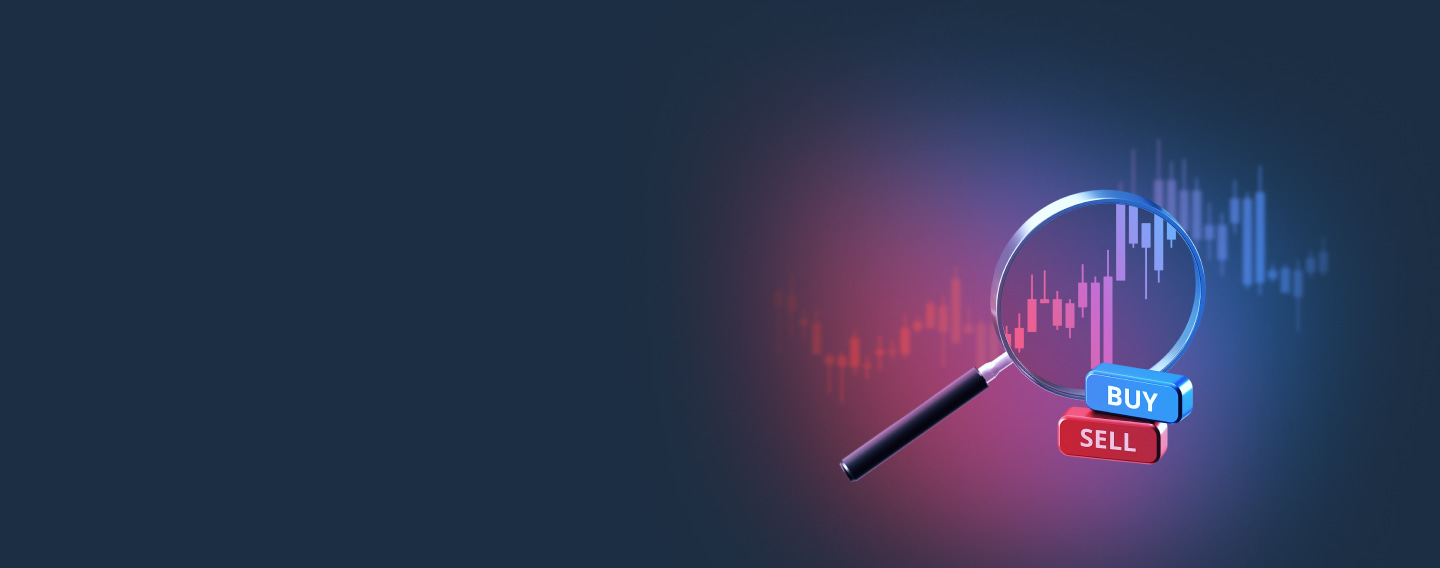


Forex Trading: Halal or Haram?
Ethics And Compliance
Forex trading is a highly intriguing field in global finance, weaving together the fabric of currencies and economies. For many, it's not just about the profit potential; it's a test of strategy, analysis, and foresight. Yet, for Muslims, there's an additional layer to consider: the principles of Islamic finance. This isn't merely a financial decision—it's a question of faith. Is Forex trading Halal or Haram? It's a debate that touches on the core Islamic finance concepts of Riba (interest), Gharar (uncertainty), and Maysir (gambling). As we embark on this exploration, we delve into a world where finance meets faith, analyzing how the dynamic market of currency trading aligns with the ethical guidelines set forth by Sharia law. This is more than just an investment query; it's a journey into the heart of Islamic finance principles, seeking a path that respects economic aspirations and religious duties.
The Islamic Finance Perspective on Forex Trading
From the viewpoint of Islamic finance, Forex trading is a canvas painted with shades of complexity. It's not black and white; it's a spectrum where principles like Riba, Gharar, and Maysir guide the brushstrokes. In Islamic finance, Riba—interest—is a significant no-go. The concept strikes at the very heart of Forex trading, where swap fees and interest are commonplace. Yet, here's where Islamic Forex accounts step into the limelight, offering a beacon for Muslims wanting to trade without stepping over religious boundaries.
Gharar, or uncertainty, similarly casts a long shadow over Forex. The high volatility and speculative nature of currency trading often dance closely with this prohibited element, challenging Muslims to find a path that skirts around it. Maysir, or gambling, further complicates the scene. While some view Forex trading through a lens of calculated risk and strategic analysis, others see it as a gamble veiled by investment.
In navigating these waters, Muslims turn to Islamic finance principles for guidance and as a lighthouse guiding their financial voyages. It's a fascinating intersection where faith meets finance, and ethical investing becomes not just a choice but a duty. This journey into Forex trading, viewed through the prism of Islamic finance, is more than just about compliance; it's about aligning economic actions with spiritual beliefs and seeking harmony in both realms.
Forex Trading and the Concept of Riba
In the heart of Islamic finance, Riba stands as a towering concern, especially when venturing into the vibrant world of Forex trading. Riba, or interest, is strictly prohibited, painting a complex landscape for Muslims navigating the Forex markets. This prohibition isn't just about avoiding interest; it's about upholding justice and equity in financial transactions, ensuring that money is used in ways that are productive and beneficial to society.
Forex trading traditionally clashes with this principle due to its inherent swap fees and overnight interest charges. Yet, the innovative solution of Islamic Forex accounts offers a doorway to participation without compromise. These accounts are meticulously designed to sidestep Riba, replacing conventional interest charges with alternative structures that comply with Sharia law.
Imagine trading without the shadow of Riba looming overhead. Islamic Forex accounts make this a reality, allowing traders to engage with the global currency market while keeping their transactions clean of interest. This adaptation reflects a broader commitment within Islamic finance to align modern financial practices with age-old ethical standards, ensuring that one's investment activities are profitable and spiritually harmonious.
Through this lens, Forex trading transcends mere currency exchange; it becomes a journey of faith-based finance, where every transaction is a step towards ethical investing guided by the principles of Islamic finance.
Speculation and Gharar in Forex Trading
Traders often encounter the whirlwinds of speculation and Gharar, but through the lens of Islamic finance, these elements are more than mere market dynamics—they're ethical boundaries. Gharar, the Islamic term for uncertainty or ambiguity, is a pivotal concern in Forex trading, where the volatility of currency values can turn investment strategies into speculative gambles.
Picture a trader, eyes glued to multiple screens, attempting to predict currency movements. This high-octane environment, ripe with the potential for profit or loss, is where Gharar finds its footing. Islamic finance advises against such uncertainty, pushing traders towards more transparent and informed decisions.
In response, the concept of Islamic Forex trading emerges as a sanctuary. Here, speculation is replaced with research, analysis, and strategic foresight. Trading decisions are made not on whims but on well-grounded expectations, minimizing Gharar and aligning actions with Islamic ethical standards.
This approach to Forex trading isn't just about avoiding risk; it's about embracing a form of financial stewardship that respects the balance between profit and principle. In a market often overshadowed by speculation, Islamic finance's guidance shines a light on a path that's both spiritually fulfilling and economically viable, transforming speculation and Gharar from obstacles into opportunities for ethical investment.
Islamic Forex Accounts: A Solution?
In the bustling world of Forex trading, Islamic Forex accounts emerge as a beacon for Muslim traders seeking a bridge between their financial aspirations and religious commitments. These accounts are crafted to dodge the hurdles of Riba and Gharar, embodying the principles of Islamic finance within the high-speed realm of currency exchange. But do they truly offer a resolution to the ethical quandaries faced by devout investors?
Enter HYCM, among other brokers, which stands out for offering Islamic accounts that align with Sharia law, ensuring that trading activities don't compromise religious beliefs. These accounts sidestep the typical swap fees associated with holding positions overnight, replacing them with alternative cost structures that maintain compliance with Islamic principles.
Imagine engaging in the Forex market, where your strategy is not just about economic gain but also adheres to a higher ethical standard. Islamic Forex accounts make this possible, offering a platform where trades are executed instantaneously, avoiding interest and reducing uncertainty.
This innovation in Forex trading is not merely a workaround; it's a testament to the flexibility and adaptability of Islamic finance, merging tradition with modernity. It proves that respecting religious values doesn't mean sacrificing potential opportunities in the financial world. On the contrary, it opens a gateway to mindful, ethical investing, where principle and profit walk hand in hand.
Halal Forex Trading Practices and Strategies
Halal Forex trading goes beyond mere compliance with Islamic finance; it's about integrating ethical practices into the heart of trading strategies. With brokers like HYCM offering Islamic accounts, the pathway to Halal trading is clearer and more accessible. These accounts embody the essence of Sharia-compliant trading by eliminating interest and minimizing speculative risk, aligning financial endeavors with Islamic principles.
Imagine entering the Forex market armed with strategies that aim for profit while upholding your ethical beliefs. This involves spot trading, avoiding excessive leverage, and employing thorough market analysis to make informed decisions. Halal Forex trading isn't just about avoiding Riba; it's a holistic approach that encompasses risk management, ethical investment, and strategic planning.
In this realm, traders are not just participants in the financial markets; they are advocates of a trading practice that respects the boundaries of their faith. Through Islamic accounts like those offered by HYCM, traders have the tools to navigate the Forex market while staying true to their ethical and religious values.
FAQs on Forex Trading and Islamic Finance
Can Muslims do forex trading?
Yes, Muslims can participate in Forex trading if it aligns with Islamic finance principles. This involves avoiding Riba (interest), Gharar (uncertainty), and Maysir (gambling). Islamic Forex accounts or swap-free accounts are designed for this purpose, allowing Muslims to trade in a way that is compliant with Sharia law.
Is trading halal in Islam?
Trading is considered halal in Islam if it adheres to Islamic financial guidelines, such as avoiding transactions involving interest (Riba), excessive uncertainty (Gharar), gambling (Maysir), and trading in haram (forbidden) items. Ethical and transparent business practices are encouraged, making many forms of trading permissible.
Is forex trading Gold halal or haram?
Forex trading in gold can be considered halal if it meets Islamic finance principles, specifically avoiding speculative transactions that resemble gambling, ensuring immediate delivery of the traded item (in this case, gold), and not involving any form of interest. The key is the trade must be done in a way that does not violate the principles of Sharia law.
Is MT4 halal?
The MetaTrader 4 (MT4) platform itself is neutral; whether using it is halal depends on how it is used. If the trades executed on MT4 comply with Islamic finance principles—such as not involving Riba, being executed immediately without delay, and not engaging in speculative transactions without due analysis—it can be used by Muslims for halal trading.



